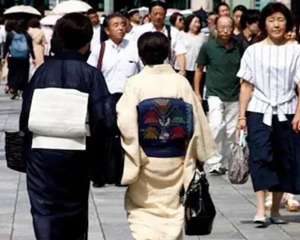For Akiko Saikawa, the administrative nightmare began soon after she married.
对于西川明子来说,行政噩梦在她结婚后不久开始。
The office worker from Tokyo had to go through dozens of procedures to change her name on her passport and other documents, as well updating her social media accounts.
这位来自东京的上班族,必须经历数十道程序,才能更改她的护照和其他文件上的姓名,以及更新她的社交媒体账户。
All because she had been required, by law, to change her surname as a married woman.
这一切都是因为法律规定,作为已婚妇女,她必须改姓。
Couples in Japan are free to choose which surname to take when they marry, but in 95% of cases, it is the woman who changes her name, often with reluctance.
日本的夫妇在结婚时可以自由选择姓氏,但在95%的情况下,是女方在不情愿的情况下改姓。
Now attention is turning to the archaic law that forbids married couples from using separate surnames,
现在,人们的注意力转向了禁止已婚夫妇使用不同姓氏的这一古老法律,
and the almost three decades of inaction after a government panel drew up proposals to change part of a civil code first adopted in the late 1800s.
而在一个政府小组起草了修改这部于19世纪末首次采用的民法典部分内容的建议后,近30年来一直无所作为。

Inconvenience aside, campaigners say the insistence on using the same surname is another sign of Japan's lack of progress on gender equality.
除了不便之外,活动人士表示,坚持使用相同的姓氏是日本在性别平等方面缺乏进展的另一个迹象。
After years of stalling, pressure is building on the LDP, not just from rights campaigners,
在多年的拖延之后,自民党面临的压力越来越大,不仅是来自维权活动人士,
but also senior business leaders who say the rule is proving an obstacle to Japanese firms that do business overseas.
还有来自高级商界领袖的压力,他们表示该规定对于进行海外业务的日本公司构成了障碍。
While the government has allowed maiden names to appear alongside married names on drivers' licenses and residence certificates,
尽管政府已允许在驾驶执照和居住证上同时显示娘家姓和婚姓,
Japan remains maybe the only country in the world that requires spouses to use the same name.
但日本可能仍是世界上唯一一个要求夫妻使用相同姓氏的国家。



